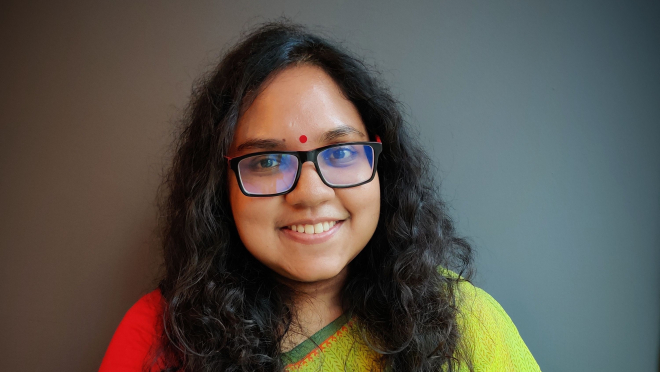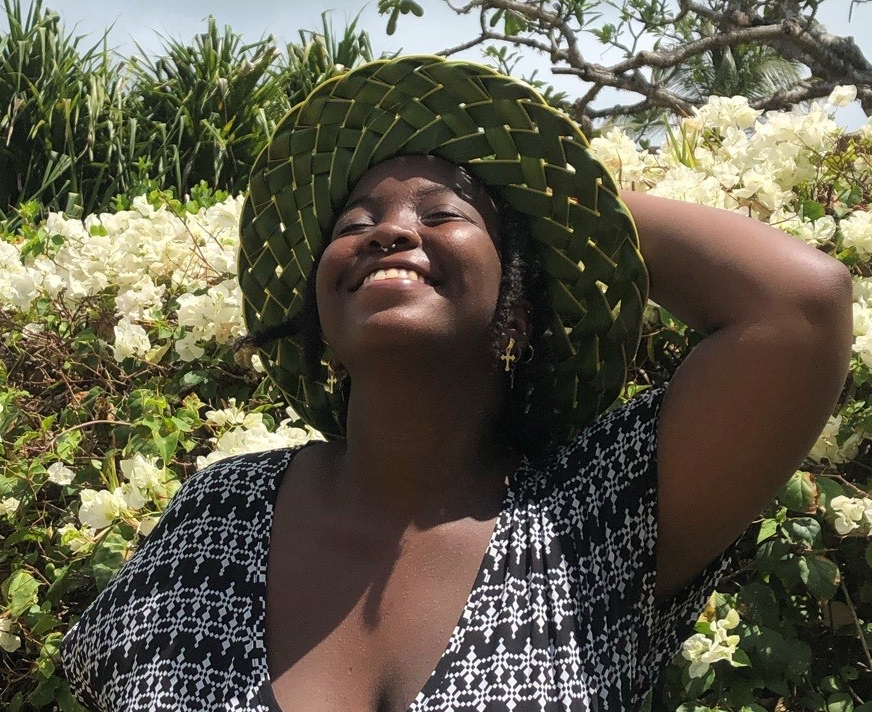10-12-2021
During the last Orange the World campaign, WO=MEN published six different portraits of women human rights defenders from around the world. Courageous women, who have dedicated their lives to their cause. And who have chosen not to be a victim, but a fighter. This is part six: Abdullah Titir, Research Specialist bij BLAST(Bangladesh Legal Aid Services and Trust)
Stories by Makena Ngito.
The community has a lot of work to do. We can fight for all these laws to be passed and the government will do that, but if the situation on the ground is still the same, what difference will it make? What is needed is proper civic education, and not only that, but the masses actually making a conscious effort to unlearn certain harmful practices and behaviours and take the time to educate themselves. That way, we can move forward with love and care for each other.
Here’s a perfect example.
In Bangladesh, sex work is not illegal. As long as you don’t work from the street, sex work in brothels and other allocated spaces is allowed. In fact, brothels and sex workers can state to the government that that is their line of work, and even pay taxes from it.
Seems like a huge leap, right? Not many countries have decriminalized it to the point where sex workers can pay taxes.
But before getting to this point, sex worker movements in the nineties had to go out into the street to protest the government banning them from working in their homes and brothels. You know what they were being told to do instead? To sew.
There’s two things to note here, first, the warped belief that sex work is not work. So sex workers should look for ‘something else’ to do.
Second, telling women to do things like ‘sew’. Limiting women to roles the patriarchy has assigned to them. Cooking, bringing up children, cleaning, sewing. Even in the corporate world, the positions are limited to secretaries and tea ladies.
And no, nothing is wrong with any of the work listed above. But when a system actively ensures that you can’t go past these roles, closing them off for you either in schools- with girls’ schools being offered home economics but boys not having this, as if they don’t also live in houses that need cooking and cleaning, but instead being offered engineering and electrical courses- or during recruitment (taking only men for the powerful jobs even when the women who applied are more qualified), when a system does this, then there’s a problem.
The sex workers got their right to work in their chosen profession, but there’s still so much to deal with.
Women and children are still being sold into sexual slavery.
Sex worker’s children are discriminated against in schools and communities simply on account of their parents’ profession.
This, this is what is meant by saying that society has a long way to go. Passing a law doesn’t wave this magic wand that automatically makes everyone a decent person.
As a kid, I had a pet goat. We lived in Rural Bangladesh, and unlike in the city where the architectural set up (apartments) couldn’t allow you to keep animals like goats, on the farm side you could have as many as your land could hold.
This goat, with its white coat with black speckles, and ears with the white tips, however, wasn’t just for milk and grazing like other livestock. He was spoilt, ha ha. He was very picky with what he ate, losing his temper when he didn’t get his preferred vegetables. He would just barge into rooms to see who was in there, and at the end of the day, when my Mom would come back home, he’d run up to her kind of like a last born going to report how horrid the other family members were. In some sense, he forgot that he was a goat, and felt that in every sense of the word, he was one of us.
It would be nice to live in a society where everyone felt that they belonged, regardless of their gender- or lack of-, of their sexual orientation, or preferred mode of dressing.
Now, way back when, before the British colonized us, Hijras were seen as deities, and treated with the utmost respect. Then the colonizers came, with their binaries, discriminations and homophobia. And all of a sudden there was a disdain towards them. People who were seen as divine blessers in a society had to resort to begging on trains and stations.
They have to live a life where the government only has them registered as men, when they have not conformed to any gender for ages, or identify as trans women. Society will make fun of their dressing choice and in general shun them, meaning that their quality of life becomes very poor because they can barely afford even good housing.
But they keep living in their truth. They work, and however long it takes, they save up to get reassignment surgery. They continue taking in queer people when their families and communities ostracize them. They continue to give people blessings, on trains and wherever else. They walk into weddings and functions, in colourful clothes and full of cheer.
Despite all that they have to go through, despite the fact that no one should have to save up for such a long time in order to afford to feel more like themselves, and how sad it is that capitalism has found its way into the intimate parts of our lives in such violent ways.
They still smile, and laugh, and hold hands. They still find people who become their chosen family, living together, loving together. They still hold onto their traditions and walk the earth with such pure intentions.
Maybe this is why I became a lawyer. To work with people and communities, ensuring that they get to live their true authentic lives without fear of harm. For them not to be shackled to colonial laws and harmful traditions. To use my knowledge and skill to actually help people, and not just myself.
I believe people should have the right to love. They should have the right to choose who to love, and how. As long as it’s consensual, there shouldn’t be laws preventing people from being together. Or working in the profession that they choose, or dressing in whatever way they prefer without intrusive questions.
I truly do not understand how the law got so comfortable being so intrusive, dismissive and wrong.
I live every day to ensure that we all have the right to love, and to be. Because I believe this is the greatest freedom that there is.
About the author:
Bios are interesting to me, and I’ll use one of my favourite things in the world to summarize it. They’re like trying to fit the vastness of the ocean, it’s size, beauty and might, into a glass. My name is Makena Ngito, and I’m a writer. I use words to describe myself, to explain things actions couldn’t show and to capture the beauty of my thoughts in a paragraph when speech fails me. I hope you like my words. I hope they light up that little part of you that you’d forgotten exists, and I hope they stay in your memories forever too.

